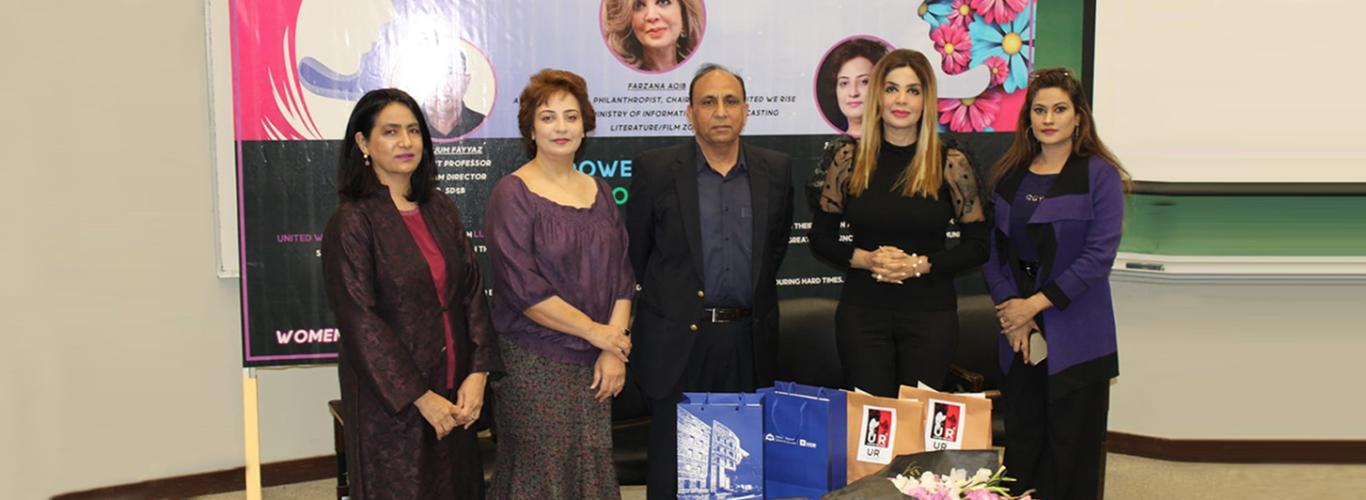Session on Women Empowerment Held at SDSB
The Suleman Dawood School of Business (SDSB) in collaboration with the organisation United We Stand (UR), organised a seminar, “Empowering Women Together.”
Dr. Anjum Fayyaz, Programme Director, MS Public and Business Policy, at SDSB, started the seminar and commented that it is important to understand the true meaning of empowerment, which is recognising one’s strengths and weaknesses, and the potential one has. He added that LUMS is encouraging women leaders in business through its 50% fee waiver to women enrolled in SDSB’s graduate programmes.
Ms. Farzana Aqib, Chairperson UR and Chief Guest for the seminar shared her lessons from her professional and personal life that helped empower her. Talking about her journey from an author to a CEO, she said, “I channelled my passion towards writing and today I have several poetry books and more than six best-selling novels. Currently, I am working as an advisor to the government on broadcasting, CEO of two women empowerment organisations, and a proud mother of a 20-year-old daughter. This is all because I never gave up my on passion and dreams.”
Other speakers at the event gave their perspective of women empowerment and how they’ve seen the status of women in society change through the years. Air Commodore, Khalid Farooq Chishti told the audience that today the Pakistani army and air force is seeing the highest number of women inductees. Director Advisor UR, Ms. Ambreen Waheed's advice to the women in the audience was that to work towards finding a unique solution that works for them and the specific situation they are in.
The first female food technologist of Pakistan, Ms. Nighat Jawad was also present at the event. She reiterated that women, once empowered, can strengthen a nation. “A truly empowered woman uplifts and adds value to the lives of other people, starting with herself. She can empower a whole generation.” The last speaker of the evening, Barrister Malik Salman Aslam explained that Pakistan does have all the requisite laws to ensure the safety and empowerment of women, but what is required is for institutions to implement the formulated laws so that women can be protected and supported.























